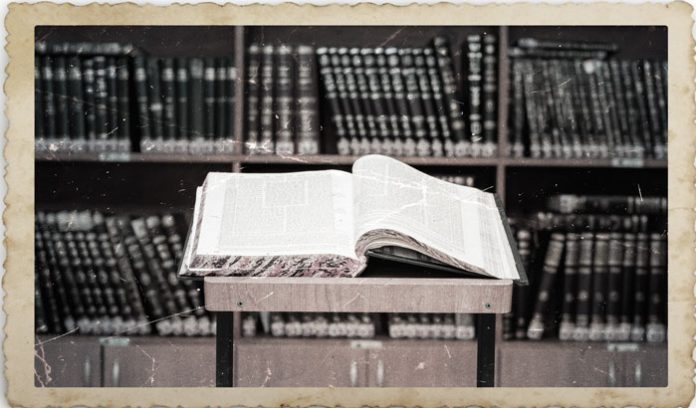Around the year 1630, Rav Pinchas Hariri of Baghdad wrote to Mosul, Kurdistan, asking that they send a rabbinical authority to Baghdad. The letter was addressed to the director of the Mosul yeshivah. She replied that she would soon send one of her students.
She? Yes.
The administrator of the yeshivah in Mosul, a city 250 miles north of Baghdad was a woman—Asnat Barazani.
Barazani lived approximately from 1590 to 1670. Ami recently set out to ascertain the facts about this enigmatic figure.
After almost a century of academic controversy, the dust has settled. We have several extant manuscripts by Barazani, about her, and written to her. We know the basic outline of her life, and recent discoveries have filled in some of the lacunae.
Her grandfather, Rav Netanel Barazani, was a rabbi and Kabbalist in Mosul. Years later, his son, Adoni Shmuel Barazani, troubled by the relatively low level of Torah learning in Mosul, a city nestled along the Tigris River (Chidekel) in today’s Iraq, undertook to establish an educational system and yeshivah. His daughter, Asnat, was an only child. She was evidently a gifted student, and since he had no sons, he gave her the benefit of the finest education. She married his top student, Yaakov Mizrahi, but stipulated that she be relieved of household duties so that she would be free to study and teach.
She describes this in her own words in the first document to be brought to the attention of scholars by the early 20th-century German-Jewish anthropologist Erich Bauer, and by historian Jacob Mann:
“And [my father] made my husband promise that he would not make me perform work, and [my husband] did as [my father] commanded him. From the beginning, the rabbi [my husband, Yaakov Mizrahi] was busy with his studies and had no time to teach the pupils, so I taught them in his stead. I was a helpmate for him… [I undertook to garner support for] the sake of my father…and the rabbi…so that their Torah and names should not be brought to naught in these communities [of Kurdistan].”
The original Hebrew in the document was so full of Biblical, Talmudic and Midrashic language that the early researchers could not believe a woman had written it. However, as evidence accumulated, it became clear that the documents had indeed been penned by Asnat Barazani, the daughter of Rav Shmuel and the wife of Rav Yaakov Mizrahi.
Kurdistan
We have evidence that a Jewish quarter existed in Mosul in the seventh century, although local inhabitants claim that that their community goes back even further, to the first exile after the destruction of the Beis Hamikdash.
We do know that during the Crusades, many Jews from Eretz Yisrael took refuge in Mosul, which was safer than other locations and under Muslim rule and protection. We have records from Jewish travelers like Benjamin of Tudela, who visited Mosul around 1170, confirming that there were 7,000 Jews there at the time. Over the next few centuries the population waxed and waned, but in the 1947 census (when Mosul was under British rule), there was about the same number of Jews in the city.
The entire Jewish population, almost all traditionally observant, made aliyah when the State of Israel was created in 1948, and by 1955 almost no Jews remained.
In Her Own Words
Although some contemporary commentators have tried to portray Asnat as a proto-feminist, her own self-descriptions belie this image. In the handwritten manuscript first transcribed by Jacob Mann in his Jews in Mosul and Kurdistan, she writes the following:
“I never left the entrance to my house or went outside; I was like a princess of Israel, ‘kol kevudah bas melech penimah’… I grew up on the laps of scholars, anchored to my father, of blessed memory. I was never taught any work but sacred study to uphold, as it is said: “And you shall recite it day and night” [Joshua 1:8].”
She repeatedly refers to the expression “bas melech penimah” in her writings, and to the impropriety of going out to collect donations for the yeshivah. When her husband was niftar, both the administration of the school and the teaching fell to her. She rose to the occasion. She lived a penurious life, using all funds for the yeshivah. Evidently, she did much fundraising by mail. In an emotional appeal written in lyrical Hebrew, she shows her expertise in Jewish sources and her gift for poetry.
“I will cry out for Torah and sigh… There is no limit to my desire… The spark of light ignites the cloudy haze. … I call to you, my friends, I beseech you… I count on your generous spirit.” She concludes, “Raise the rays of light…that Torah should not be extinguished.”
The debts of the yeshivah were often so heavy that her own possessions were confiscated. “Nevertheless, I still continued to teach Torah, speaking on the subjects of family purity, tefillah, Shabbat and similar topics.”





















